Open-minded lawmakers and necessity, created by the pandemic, hastened the use of permanent vote-by-mail lists. More and more of us seem to appreciate the benefit of being able to do our voting research, with our ballots right by our side, from home. Early indications in Chicago, for instance, show vote by mail and early voting more than doubling that method of casting ballots from four years ago.
That’s terrific, and with more local elections coming in April statewide, as well as the likelihood of several runoffs in Chicago, there is even more we can do to help candidates, make information accessible to voters, and bring greater equity to our ballots and our elections.
One simple idea long overdue is this: Let’s require those seeking office to submit an email address or phone number where they can be reached when they file their paperwork to run for office. Chicago elections board officials encouraged candidates to submit this information several years ago and most candidates did so this cycle, making it far, far easier for media, community groups, and others to contact candidates and find out what they aim to do if elected.
It’s not a requirement, however, at the state level. So, when literally thousands of Illinois candidates filed to run for school board and park district board and municipal office and fire protection districts at hundreds of local government offices recently, none of them had to leave information about where they could be reached.
That oversight makes it an unnecessary, herculean task for local reporters, members of League of Women Voters chapters and others to try to hunt down candidates to provide voters information about them with nothing more than a physical address.
House Bill 3221, the Ballot Access for All Act, would require an email address and phone number on statements of candidacy.
The legislation also would boost ballot access in Chicago and Cook County by bringing some uniformity to the numbers of voters’ signatures candidates must collect. It’s simply not logical or fair that those who want to run for Chicago mayor must collect 12,500 voter signatures, but those who want to run for governor of the entire state need only collect a minimum of 5,000 signatures. For Cook countywide office, the numbers of voter signatures needed also can jump too high: 5% of the registered voters within the candidate’s political party. In 2018, this meant people wanting to run countywide had to collect a minimum of a whopping 20,000 signatures. These disparities were created years ago to control who could run and it’s time they ended.
Veteran politicians will tell you candidates are required to get some signatures to show they have support and the wherewithal to get organized and run. That might make some sense to an extent, but why should candidates for mayor or Cook countywide office have to collect more than double the number a governor candidate does?
The Ballot Access for All Act also would end the limiting requirement that voters can only sign one candidate’s petitions for a particular office. Voters ought be allowed to help multiple candidates for any office get on the ballot and run. Signing a petition for candidacy isn’t, and shouldn’t be, treated the same as casting a ballot.
It’s also time we took advantage of the technology we have and make collecting valid signatures easier. How about we test letting signature collectors use the internet in real time to verify that someone is actually registered to vote at the address they provide before they sign a candidate’s petition. Checking someone’s registration using an electronic tablet or phone before they sign a petition has been allowed for years in Colorado and it’s dramatically lowered the number of invalid signatures.
In California, challenges to candidates’ petitions also are rare. In Illinois, would-be candidates frequently spend weeks and precious resources hiring lawyers and fighting to try to access the ballot. Not only does it discourage people from trying to run for office, the petition battles can play havoc with ballot creation and early voting. It also disrupts a candidate’s ability to campaign and tell voters about their views.
Just ask Shawn Walker about that. Nine days before the end of voting, an appellate court ruled Walker, an aldermanic candidate in Chicago’s 28th Ward, should be put back on the ballot. Early voting had to be stopped so ballots could be reprinted. Walker is trying to run against incumbent Jason Ervin.
“I’m not going to lie and say it’s going to be easy to win,” Walker told the Chicago Tribune. “It’s going to be an uphill battle. But we’re going to fight and give people a choice.”
More information, access, convenience and choices. Isn’t that what we should be striving for with our elections?
This column was originally published in Crain’s Chicago Business. Read the original article here.
